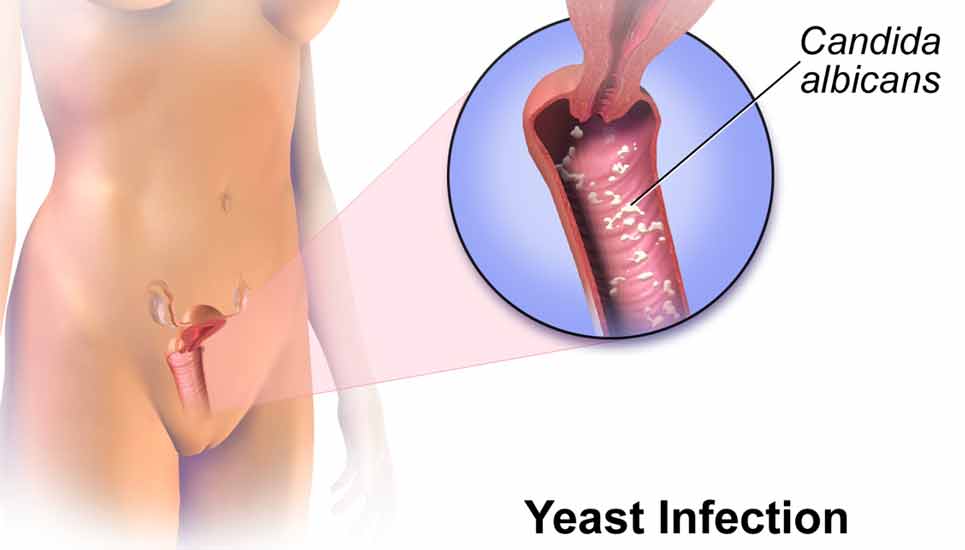The Sperm and Yeast Infection Connection
When it comes to discussing yeast infections, many misconceptions and uncertainties surround the topic. Some individuals may wonder, "Can sperm cause yeast infection?" Today, we aim to answer this question and provide a definitive understanding.

Firstly, it's essential to establish that sperm itself does not directly cause yeast infections. Yeast infections, also known as candidiasis, are caused by the overgrowth of yeast called Candida. This overgrowth typically occurs in warm, moist areas of the body, such as the vagina.
While sperm does not cause yeast infections, sexual activity can contribute to their development. During sexual intercourse, various factors can disrupt the natural balance of microorganisms in the vagina, potentially leading to an increased risk of yeast infections. These factors include:
1. Changes in pH levels
Semen has a relatively high pH level compared to the vagina's acidic environment. This temporary change in pH may disrupt the delicate balance of bacteria and yeast present, setting the stage for yeast overgrowth.
2. Allergic reactions
Some individuals might have an allergic reaction to components in sperm, lubricants, or condoms. Allergies can cause irritation, inflammation, and an increased likelihood of yeast infections.
3. Impaired immune system
Intercourse can create micro-tears in the vaginal lining, providing an entry point for yeast to multiply. If the immune system is weakened due to certain medications, health conditions, or stress, the body may struggle to fight off yeast overgrowth.
It's important to note that yeast infections are not classified as sexually transmitted infections (STIs). Although engaging in sexual activity may increase the risk of developing a yeast infection, it is not a direct cause. Anyone, regardless of their sexual activity, can experience a yeast infection.
If you are experiencing the symptoms of a yeast infection, such as itching, burning, or unusual discharge, it is essential to seek medical advice. A healthcare professional can properly diagnose and provide appropriate treatment options based on your unique situation.
In Conclusion
While the question, "Can sperm cause yeast infection?" may lead to confusion, it is essential to clarify the facts. Sperm does not directly cause yeast infections, but sexual activity can contribute to their development. Understanding the risk factors and seeking appropriate medical care when necessary are key to maintaining vaginal health and overall well-being.
Related FAQs about can sperm cause yeast infection
Can yeast infections be transmitted through sperm?
No, yeast infections cannot be transmitted through sperm. Yeast infections are caused by an overgrowth of yeast in the body, specifically Candida, and are not considered a sexually transmitted infection.
Does the pH of sperm contribute to yeast infections?
The pH of sperm is relatively high compared to the acidic environment of the vagina. This temporary increase in pH levels may disrupt the balance of bacteria and yeast in the vagina, potentially increasing the risk of yeast overgrowth and subsequent infections.
Can allergies to sperm or other substances lead to yeast infections?
Yes, some individuals may have allergic reactions to components in sperm, lubricants, or condoms. Allergic reactions can cause irritation and inflammation in the vaginal area, making it more susceptible to yeast infections.
Can an impaired immune system from sexual activity contribute to yeast infections?
Sexual activity can create micro-tears in the vaginal lining, providing an entry point for yeast to grow. If the immune system is weakened due to medications, health conditions, or stress, it may struggle to combat yeast overgrowth, potentially leading to yeast infections.
Are yeast infections always a result of sexual activity?
No, yeast infections are not exclusively caused by sexual activity. While sexual activity can increase the risk of developing a yeast infection, anyone, regardless of their sexual activity, can experience yeast overgrowth and subsequent infections.
Glossary about can sperm cause yeast infection
1. Yeast infections: Yeast infections, also known as candidiasis, are caused by the overgrowth of yeast called Candida. This overgrowth typically occurs in warm, moist areas of the body, such as the vagina.
2. Candida: Candida is a type of yeast that can cause infections when it experiences overgrowth, leading to conditions such as vaginal yeast infections.
3. pH levels: pH levels refer to the measurement of acidity or alkalinity in a substance. In the context of yeast infections, the pH level of semen can affect the delicate balance of microorganisms in the vagina.
4. Allergic reactions: Allergic reactions occur when the immune system responds abnormally to certain substances. In the context of yeast infections, allergies to components in sperm, lubricants, or condoms can contribute to the development of yeast infections.
5. Immune system: The immune system plays a crucial role in protecting the body against infections. A weakened immune system can increase the likelihood of developing yeast infections, as it may have difficulty fighting off yeast overgrowth.
6. STIs: STIs, or sexually transmitted infections, are infections that are primarily spread through sexual contact. Yeast infections, although influenced by sexual activity, are not classified as STIs.
7. Micro-tears: Micro-tears refer to tiny, often invisible, tears or injuries in the skin or tissue. During sexual intercourse, micro-tears can occur in the vaginal lining, potentially providing an entry point for yeast to multiply.
8. Vaginal health: Vaginal health refers to the overall well-being and proper functioning of the vagina. Maintaining vaginal health involves maintaining the balance of bacteria, yeast, and acidity levels to prevent infections and other issues.
